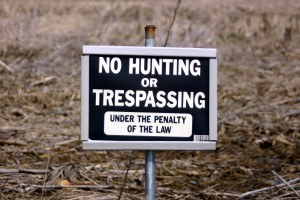One Way To Generate Significant Passive Income From Your Land
As a landowner you don’t need to be told that the carrying costs of your land is high. Real estate taxes take their toll – literally and figuratively. It’s a symptom of a dysfunctional tax system that the bulk of revenue generated for state and local governments is done so through real estate taxes. However, until the political will miraculously appears to change this, a landowner needs ways to proactively address covering this annual expense. A great way is through the leasing of your land for hunting or recreational purposes.
How The Process Works
Typically, under a lease agreement, the party looking to lease responds to an add you, or your forester, post on the internet or place in a hunting or recreational magazine. At that point the interested party looks the land over and if they find it favorable – agree to a one year lease . The price paid for the rights to use the land are based upon a per acre formula. A legally binding contract is then drawn up, deposit made and shortly thereafter a copy of lease insurance presented to you the lessor by the leasse. You then post your property and exclusive rights are given to the leasse to use your property for hunting and recreational purposes.
Parcels Of Land Best Suited For Lease
An ideal candidate for leasing would be a parcel of land that is greater than 40 acres in size, with a good mix of wildlife habitat, easily accessible without your primary residence on site. Parcels bordered by State Wildlife Management land, located in a predominately urban area or with a small camp on site, can command a premium in the lease marketplace. Having water present is also a plus.
Substantial Annual Income

The money generated by a yearly lease can be significant. It is not uncommon to have land in places like eastern New York $15- $20 p/acre. For a 150 acre woodlot, that translates into roughly $2200 -$3000 p/year in passive income. Granted in areas like New York state there has been a long history of leasing private land so the marketplace rewards this with higher annual lease payments than New England. However, as places like New Hampshire become ever more urbanized, the lease marketplace will become more commonplace and reflect this with prices on par with areas where leasing is already common.











